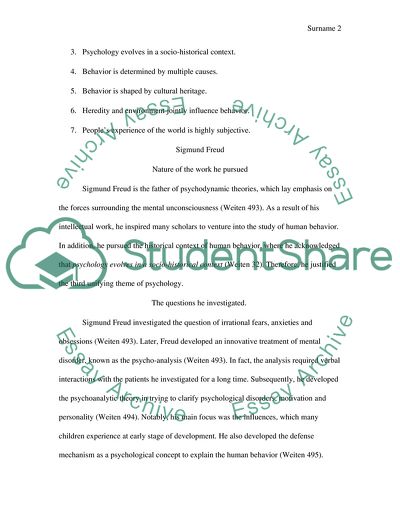Cite this document
(Psychological Concepts and Theories Essay Example | Topics and Well Written Essays - 1500 words, n.d.)
Psychological Concepts and Theories Essay Example | Topics and Well Written Essays - 1500 words. https://studentshare.org/psychology/1760453-understanding-the-psychological-concepts-and-theories-in-scientific-studies-and-applying-the-seven-unifying-themes
Psychological Concepts and Theories Essay Example | Topics and Well Written Essays - 1500 words. https://studentshare.org/psychology/1760453-understanding-the-psychological-concepts-and-theories-in-scientific-studies-and-applying-the-seven-unifying-themes
(Psychological Concepts and Theories Essay Example | Topics and Well Written Essays - 1500 Words)
Psychological Concepts and Theories Essay Example | Topics and Well Written Essays - 1500 Words. https://studentshare.org/psychology/1760453-understanding-the-psychological-concepts-and-theories-in-scientific-studies-and-applying-the-seven-unifying-themes.
Psychological Concepts and Theories Essay Example | Topics and Well Written Essays - 1500 Words. https://studentshare.org/psychology/1760453-understanding-the-psychological-concepts-and-theories-in-scientific-studies-and-applying-the-seven-unifying-themes.
“Psychological Concepts and Theories Essay Example | Topics and Well Written Essays - 1500 Words”. https://studentshare.org/psychology/1760453-understanding-the-psychological-concepts-and-theories-in-scientific-studies-and-applying-the-seven-unifying-themes.


